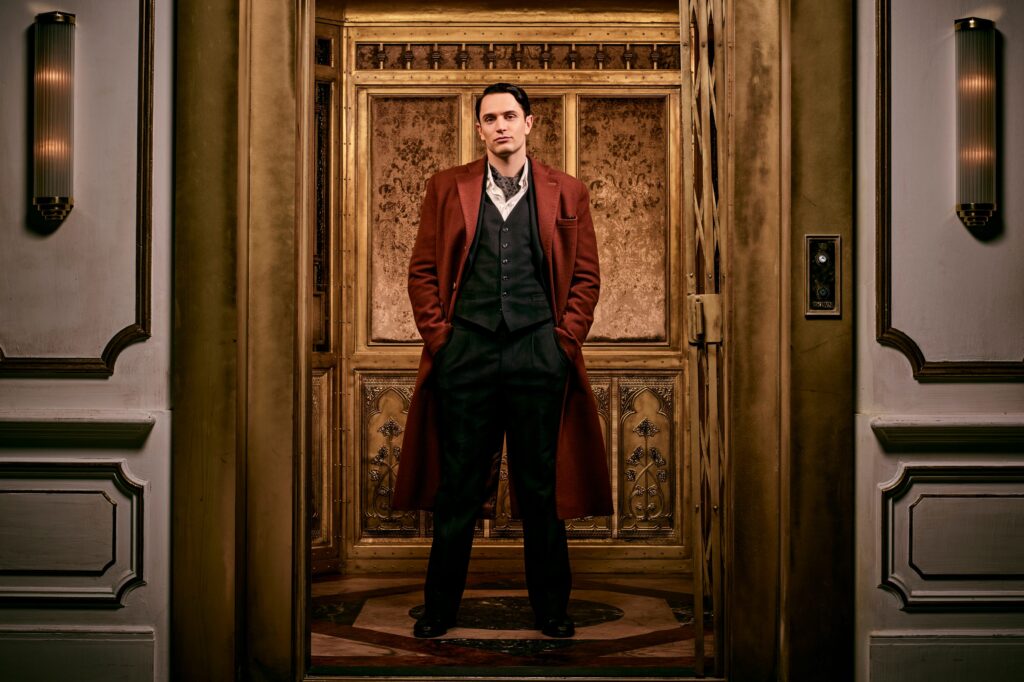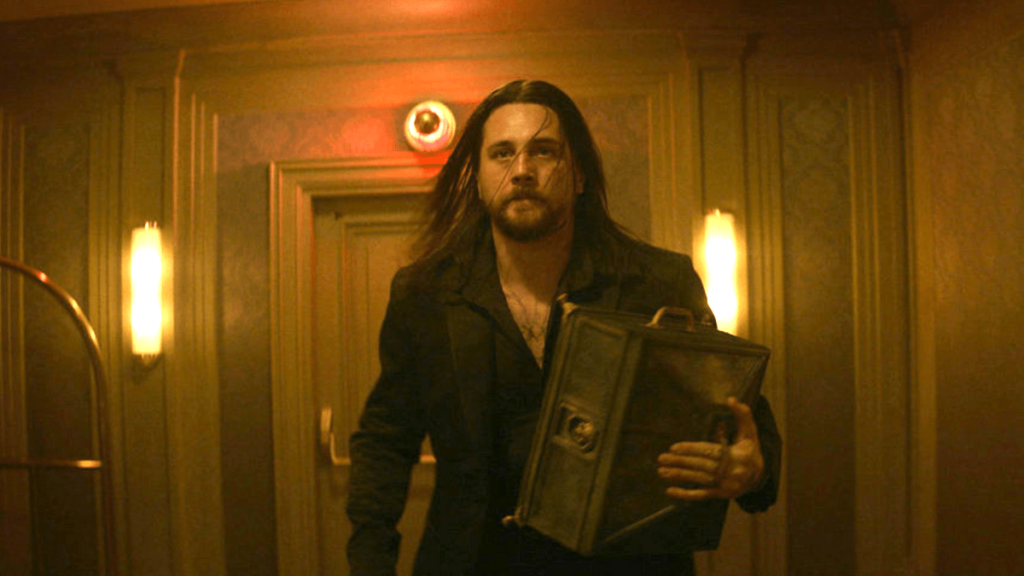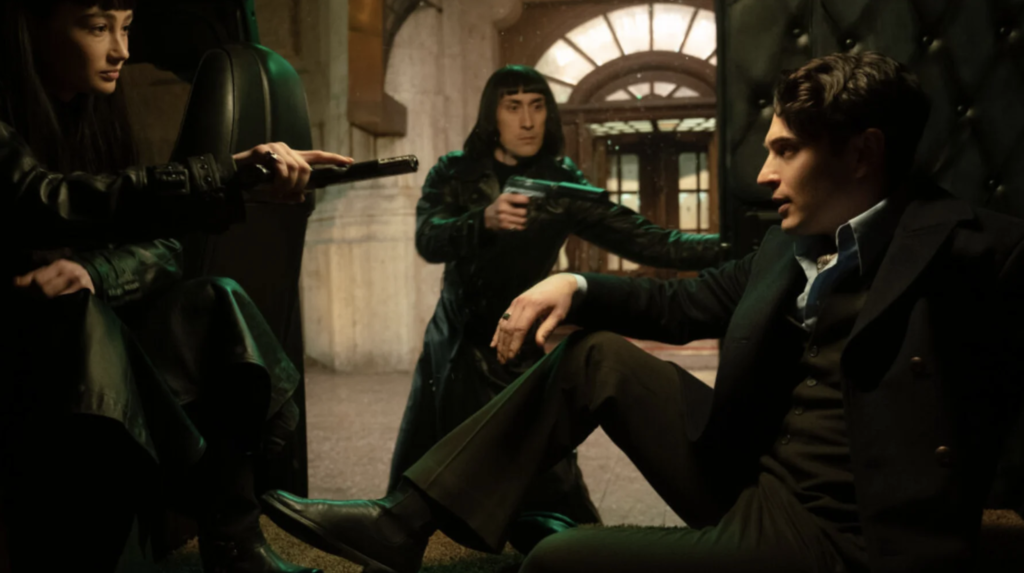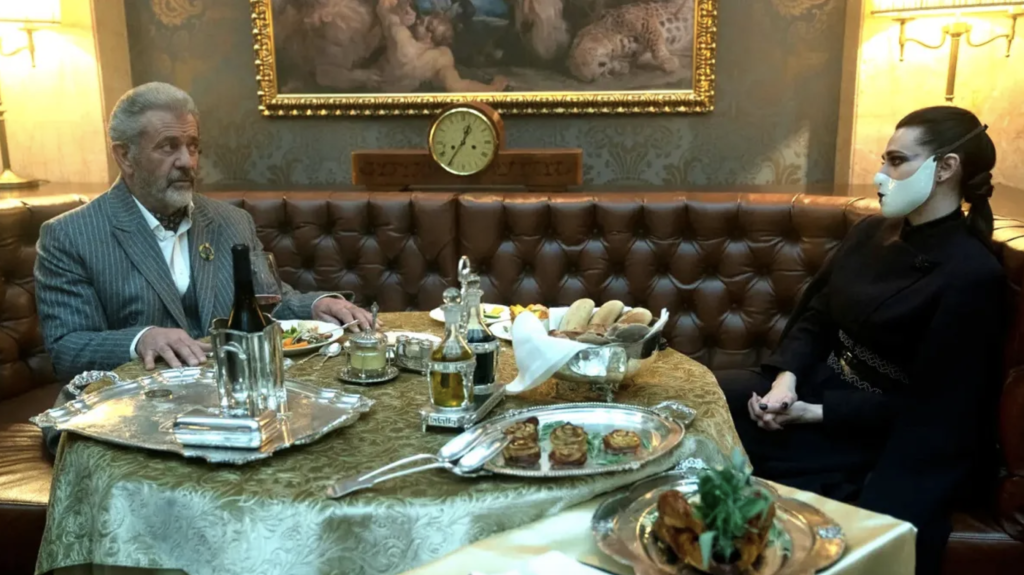”The Continental” draws heavy inspiration from The Godfather. Does it work?

You gotta give it to the John Wick people.
They optimistically charged into a seemingly impossible task.
They took a franchise built on top of thin characterization, thinner mythology, and overly-impressive production value and migrated it to a medium that’s all about characterization, needs mythology to thrive, and doesn’t have the money to pull off great production value.
But this is what Hollywood does. It expands. And it often expands without thinking. David Goyer was just talking about this on the Happy Sad Confused podcast last week. He was writing the DC movies when Marvel blew up and he was getting non-stop notes from the studio that they had to accelerate their plans to expand their universe, leap-frogging over a second Superman film to do Batman vs. Superman instead.
That decision was widely criticized for breaking the DCEU, as it attempted to expand a universe that hadn’t yet set its foundation.
Building a show around the famous hotel in John Wick (The Continental) sounds good in practice. It’s a hotel that houses assassins. I mean, how cool is that? But this is what’s tricky about screenwriting. “General coolness” isn’t the best starting point for a movie or a show. You need a more focused idea, even for television. The more specific you can get, the better.
Gray’s Anatomy, one of the longest running shows on television, wasn’t about “a hospital in Seattle.” It was about a group of first year doctors thrown into the fire in a hospital in Seattle. And if you want to get more specific, it was about a young woman whose mother, one of the most successful doctors in the nation, had recently been diagnosed with early-onset dementia, and the challenges our heroine had of trying to navigate the hospital as a first year doctor, helping her mother, as well as living up to her reputation.
In other words, you can’t just say, “The Continental, cool assassins” and you’re finished. You have to come up with an actual idea, something that can be expanded out into a compelling story.
So what did the writers come up with?
They decided to focus the story on the man who would eventually become the manager at the Continental, Winston Scott, and set the show 50 years prior, in the 70s. Young Winston is some big shot businessman who lives a straightforward life. He’s unexpectedly called into the world of the Continental after his black sheep brother, Frankie, who he hasn’t seen in ages, steals a literal mystery box from the infamous hotel.

The current manager of The Continental, Cormac O’Connor (Mel Gibson), kidnaps Winston to bring him in, and demands that he find Frankie for him, so he can get his mystery box back. This sends Winston into a criminal underground which he is unfamiliar with. This storyline intersects with a couple of others, including a rookie cop, KD, who wants to know more about the mysterious Continental hotel, and a team of funky criminals who use a karate dojo as cover for their small-time criminal operation.
The Continental starts out strong. My favorite moment is when Frankie uses the cover of a big party in the Continental to break into the hotel from the subway, going up through several floors to where a giant safe is. Then he hooks onto the safe with a chain that goes all way down to the subway, where an anchor dangles and waits for a train to come. The train hooks onto the anchor, yanking the the safe door off and allowing Frankie to complete his heist. It’s quite clever.
This is followed by a fun stairway escape set piece where Frankie is having to take on assassins that are both below and above him. I always say, the best set piece you can write is one where the reader is convinced there’s no way out. And it truly feels like there’s no way out for Frankie. But through brute perseverance, he somehow takes everyone down and escapes.
I was in at that point, crafting my application letter to the Continental Fan Club.
Unfortunately, the rest of the show never quite lives up to that opening. It does have a clear goal – Cormac (and by proxy, Winston) needs to get that box back. And it does have some mystery. What’s in that box?? It also has a little Godfather to it in that Winston is the outsider. He doesn’t want anything to do with the criminal world. So it’s a fun idea to force him into that world. And, of course, we know he’s going to end up just like Michael Corleone. So, technically, we’re invested in that transformation.
But that’s where The Continental made its first mistake. For something like this to truly hit, Winston has to be a BONA FIDE outsider. Cause we’re going for a “fish-out-of-water” narrative here, with a non-criminal being forced to engage with the criminal world. All the fun is in the contrast. That’s where your conflict is going to come from and the conflict will breed the drama that powers your episodes.

The problem was, Winston never felt that out of water. He was more like a fish being carried around in his own personal fish tank. Cause whenever he walked into a dangerous criminal situation, such as when he went looking for Frankie at the Funky Bunch Karate Dojo, his demeanor remained as calm and collected as if he’d received a preview of the John Wick movies from a time-traveling visitor, leaving him utterly assured of his survival and unfazed by any potential threats.
There’s a better creative option here. If Winston was more of a dainty nerdy financial guy who is all brains and no muscle, then we’re milking the fish-out-of-water scenario. Which is what you want! If he’s already comfortable being a bada$$, where’s the potential character growth? Cause that’s how he was in the movies.
The biggest problem with The Continental is that it doesn’t give us a character to love. We kinda like some of these characters. But we don’t love any of them. They could’ve easily fixed this by making Winston a true underdog. Place him a million miles away from the criminal world. Make him more of a nerd. The guy shouldn’t even know how to hold a gun. The more of an underdog he is, the more we would’ve loved him. I guarantee it.
In fact, I would argue that Frankie would’ve been a better Winston than Winston. Because, even though Frankie was a criminal, he was a rough-and-tumble plays-by-his-own rules criminal. He’s the opposite of the refined respectful professional criminals who work and stay at The Continental.
So at least with him, we can imagine how much he would need to go through to become Winston. A lot. Whereas the current Winston is already basically Winston from the movies.
The other big problem with this show is one that has nothing to do with the writing, and something I hate thinking about because I’m the screenwriting guy and I want to believe that any problem can be solved by the writer. But the truth is that every show you turn on for the first time is dependent on there being at least one actor who you say, “I want to know more about them.” There’s some perfect cosmic marriage between actor and character that, irrespective of the show, you just want to see more of them. The Continental does not have that.
I remember when I first saw Lost. That feeling happened almost a dozen times. Every actor who popped on screen, I said, “I want to know more about this person.” And, unfortunately, if you don’t have that, it’s almost impossible to overcome it. So, bad casting work by the show’s casting department.
I will say that they’re spending some legit dolla bills on this show. There are a lot of moments that could’ve been in John Wick movies. And setting the story in the 1970s does give the John Wick universe that slightly different feel required to separate the show from the films. And Mel Gibson as the big baddie looks to have potential.

I’m just not convinced they have a real story to tell here. And that probably has to do with the fact that they’re building the show on one of the thinnest cinematic universes ever created. And I’m a John Wick fan! It’s a fun cinematic universe! But it was never a universe designed for depth.
What’d you guys think?

